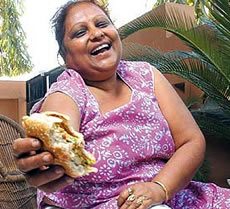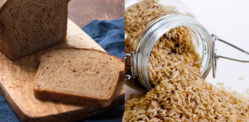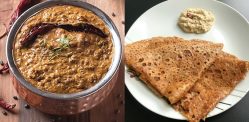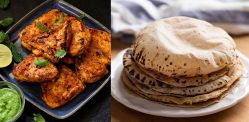use healthier oils for cooking such as Rapeseed oil
South Asian health related to diet is frequently in the news. The obesity epidemic is on the increase and now even making its way to India, where reports of obesity in the upper classes is becoming a problem due to higher consumption of junk food compared to lower social classes.
In the UK, communities from South Asia are already on the high risk list for heart disease, mainly due to diets containing high fat and sugar content.
 For British Asians the issue is still a key one mainly due to families not changing habits in cooking or eating fat and sugar rich foods without a concern for their health.
For British Asians the issue is still a key one mainly due to families not changing habits in cooking or eating fat and sugar rich foods without a concern for their health.
Newer food habits amongst British Asians are also having an impact with high proportions of fast food such as pizzas, burgers, kebabs, heavily fried foods and chips being consumed regularly and more frequently. Many young people are very overweight in their youth, heading for problems later on in life.
Research by the British Heart Foundation (BHF) has found that people of South Asian origin or descent are likely to develop coronary heart disease much more than their white counterparts. Factors that influence cardiovascular disease in South Asians include raised cholesterol, hypertension, diabetes and obesity.
In a report called ‘Ethnic Differences in Cardiovascular Disease’ produced in 2010 by the BHF, it states that Chronic Heart Disease (CHD) is highest in Indian and Pakistani men; Black Caribbean, Indian, Pakistani and Bangladeshi men have a higher prevalence of Diabetes and in 2004, Indian men had the highest BMI waist-hip ratio of 0.95 and over, compared to all other men in England.

Foods which contain fat are made up of a mix of saturated fats, mono-unsaturated fats and polyunsaturated fats.
The healthier fats are mono-unsaturated fats and polyunsaturated fats.
Fat is a key issue for change.
Foods which are high in overall fat content are more than 20g of fat per 100g and those low in overall fat content will be 3g of fat or less per 100g.
Sugar in diets is another problem. Foods which are high in sugar are more than 15g of total sugars per 100g and those low in sugar are 5g of total sugars or less per 100g.
Basically, for a healthy Desi heart it is about control and making simple changes which can have a dramatic effect on the diet and health.
The figures for the UK say, the average man should eat no more than 30g of saturated fat a day and the average woman should eat no more than 20g of saturated fat a day. It is likely, Asian diets exceed these figures especially in foods cooked with no measure of fat content. Especially, foods cooked in restaurants and fast food outlets, who frequently tend to cook for more taste than health.
So, let’s look at foods, their content and ways of cooking that can make a difference to your diet, health and reduce the chances of you being an obesity statistic.
COOKING HABITS
Healthy Oils – use healthier oils for cooking such as Rapeseed oil to cook South Asian dishes. It has a very mild taste and you do not notice the difference when swapping it with butter or ghee.
Real Spices – use real spices to cook your food compared to using pre-prepared sauces which a very popular for convenience but have extra oil added to them.
Garlic and Ginger – add plenty of garlic to your cooking as it is an excellent food for assisting with good circulation and does wonders for the heart. Use ginger in your cooking which is great for health and adds a lovely flavour.
Fry Less – grill, bake, poach or steam food rather than frying or roasting, so that you won’t need to add any extra fat.
Yoghurt – use low fat yoghurt instead of cream for rich creamy dishes such as korma.
Meat – trim visible fat and take skin off meat before cooking. Use the grill or griddle pan instead of the frying pan, for whatever meat you’re cooking.
Less Oil – use less oil in your meat curries and sabjis. Put more vegetables or beans in your curries, and a bit less meat. Skim the fat off the top of curries before serving.
Chappatis and Naans – Use wholemeal flour. Do not butter your fresh chappatis or naans. Lightly brush them with healthy oils if you do want them softer.
Salad – serve salad with your meals. Adding cucumber, tomatoes, onion and lettuce to your meal will make a healthier addition and may stop you from eating too many chappatis or naan.
Fresh is Best – cook fresh as much as possible with fresh ingredients using lots of vegetables. A basic curry for one person can be made within an hour and half.
EATING AND DRINKING HABITS
Fried Foods – Reduce foods such as fried samosas, pakoras, spring rolls, mithai (desi sweets), pastries, cakes, crips and biscuits and eat more of the healthier alternatives such as fruit and vegetables.
Saturated Fats – cut down saturated fats by reducing too many foods such as butter, hard cheese, fatty meat, processed meat products, biscuits, cakes, cream, lard, dripping, ghee, coconut oil and palm oil, which are examples of saturated fats.
Slow Release Foods – eat more starchy foods such as wholemeal chappatis, wholegrain bread, pitta, pasta, rice, noodles, quinoa, bulgar wheat and cereals. Foods which fill you up more and are of a slow release.
Trans Fats – cut down trans-fats which are found in foods such as dairy foods and meats. They also are used to make processed foods, hard margarines, cakes, pastries, biscuits and crackers.
Processed Foods – reduce your intake of processed foods, take-outs with processed meats, too much high fat dairy high especially fatty cheeses. Swap them for healthy alternatives like cottage cheese, light spreads and real fresh meat e.g. chicken breasts.
Avoid fried chips, french fries, wedges, fatty burgers and heavy cheese and processed meat based pizzas. Swap for jacket potatoes, small portions of oven chips or wedges, grilled meats and oily fish.
Fast Food – cut down on how much fast food you eat in a week. Try healthy alternatives. For example, a chicken breast tikka cooked in a tandoor, served on freshly baked naan is better for you than fried chicken with the skin on it served with fries.
Asian Sweets – as yummy as it is, only have mithai and weets on special occasions. Swap these for healthier alternatives such as fruit salad, fruit smoothies and jelly.
Try Different Meals – experiment and try healthier meals as a change. For example, cook chicken tikka fresh on a griddle pan and serve with a large salad containing spinach, cucumber, tomateos, sun-dried tomatoes and olives with a light dressing of lemon juice and seasoning instead of having rice, naan or chappati with it.
Swap your meat once a week for soya such as Quorn. This is high in protein and tastes as good as meat when cooked in any South Asian dishes.
Omega 3– Aim to eat two portions of oily fish per week. It is a well known provider of polyunsaturated fat known omega-3 fats which help lower blood triglyceride levels and reduce the chances of heart disease. Mackerel, pilchards, herring, sardines, trout and fresh tuna are all examples of oily fish.
If you are vegetarian you can get omega-3 from rapeseed oil, flaxseed oil and some nuts such as walnuts.
Snacking stay away from fried snacks like chevda, bombay mix, crisps and swap them for a small handful of nuts like almonds, dry cereal, fruit like grapes and berries, and dried raisins.
Water – Drink more water. At least aim for 5-8 glasses a day.
Tea and Coffee – Have more teas especially herbal teas such as green tea which is high in anti-oxidents. Reduce coffee intake. Tea and coffee also include water.
Alcohol – limit how much alcohol you drink. Do not binge drink. Alcohol adds calories and sugar to your diet.
Sugary Drinks – cut down of full sugar drinks, especially fizzy drinks, and foods with high sugar content. Go for ‘No Sugar Added’ or ‘light’ versions.
Read Labels Carefully – nutrition labels on food packaging can help you to reduce the amount of fat you eat. Always check the label. High fat foods will have more than 20g of total fat per 100g and low fat foods will have less than 3g of total fat per 100g.
These are simply a few changes out of many that can help you maintain a healthy heart and reduce the risk of heart disease. However, it is not just changes to diet that are required; you must also ensure you are engaging in physical activity and exercise.
Doing exercise where you feel breathless for about 30 minutes a day is ideal and more is better. So, going to the gym, playing team sports, brisk walking, jogging, running and swimming are all good examples of exercise.
So, do not leave it to the point where you cannot change eating habits and ‘let go’ of yourself. Act now, do something that will benefit you, especially if you are overweight and help yourself to a maintaining a healthy Desi heart.




























































